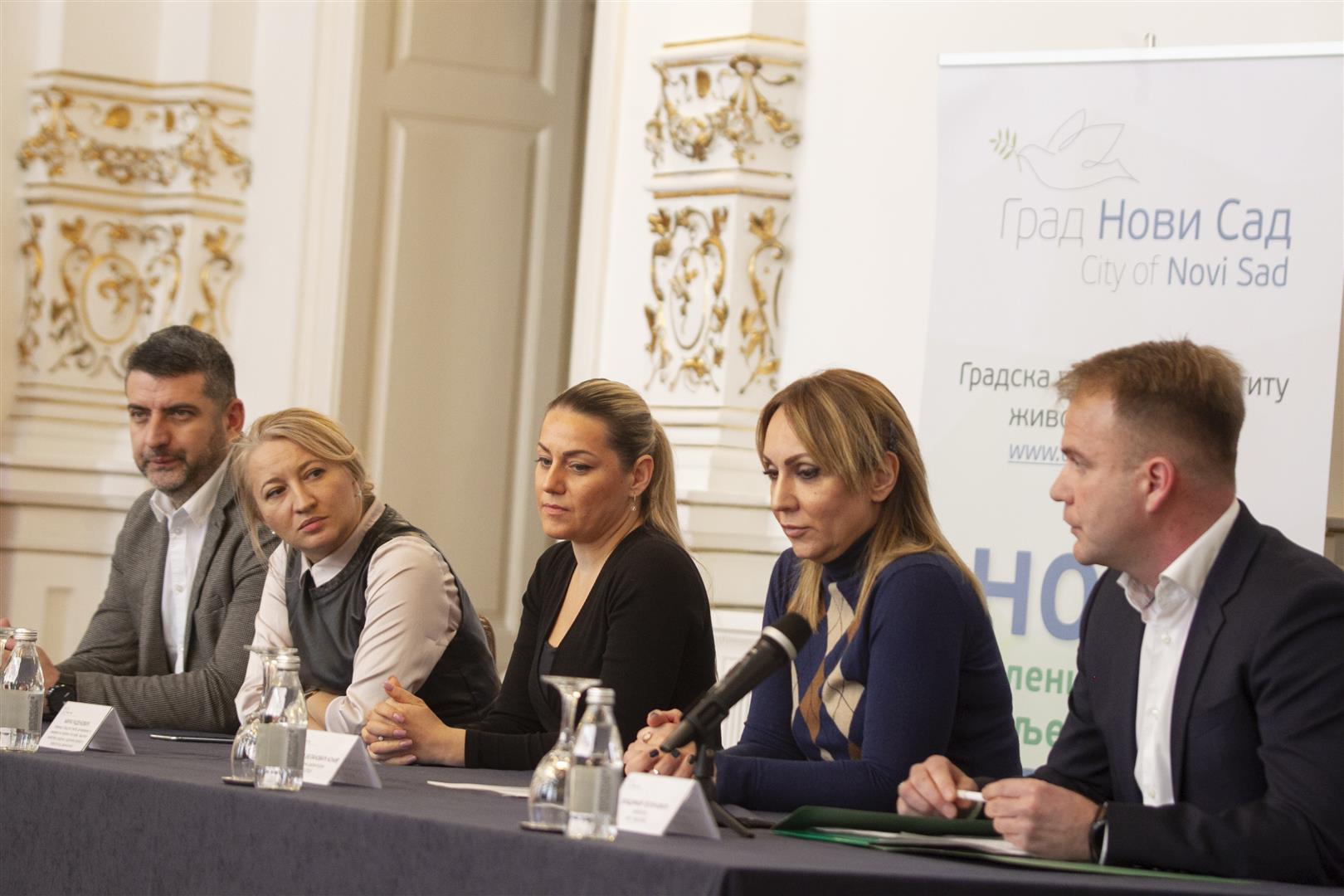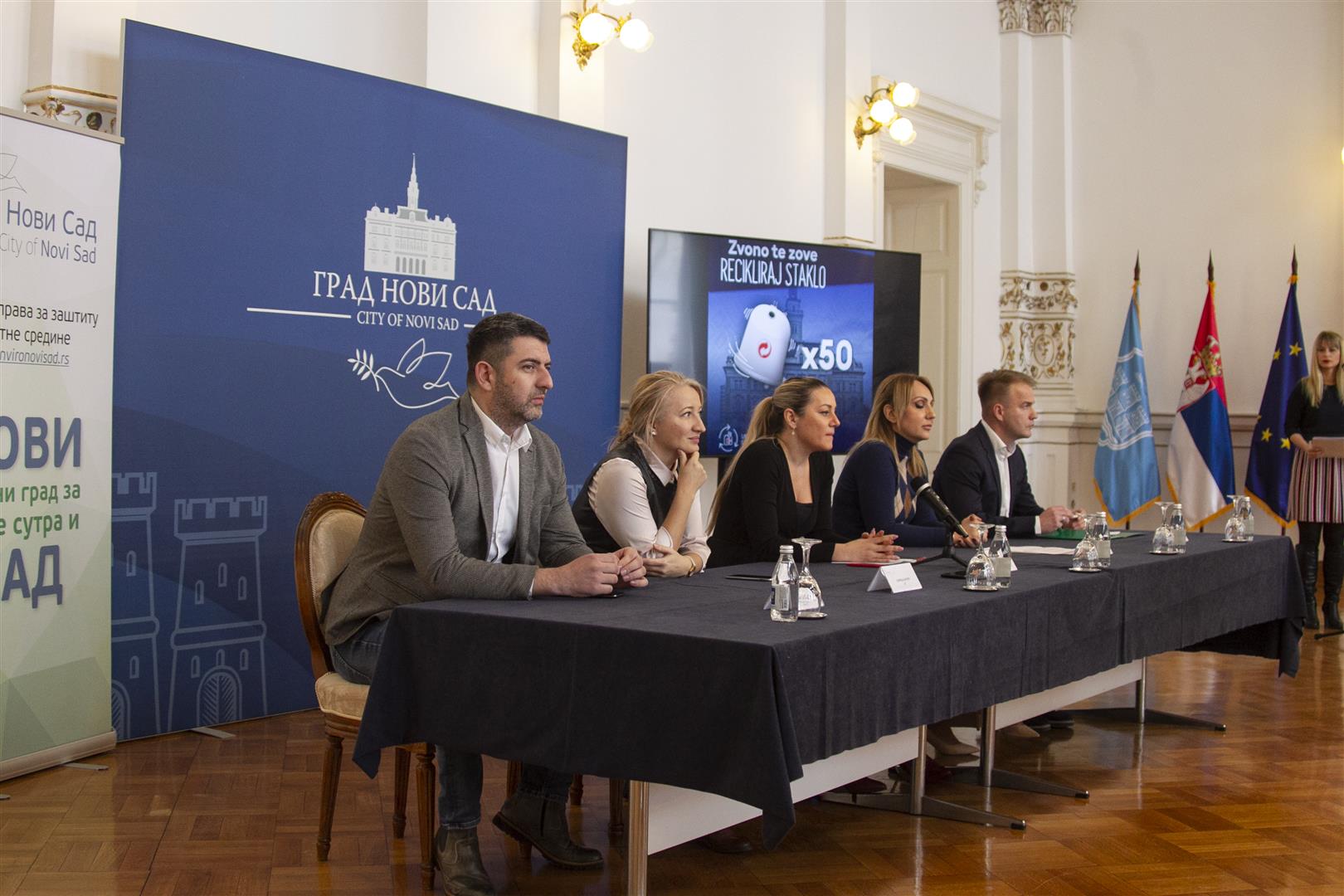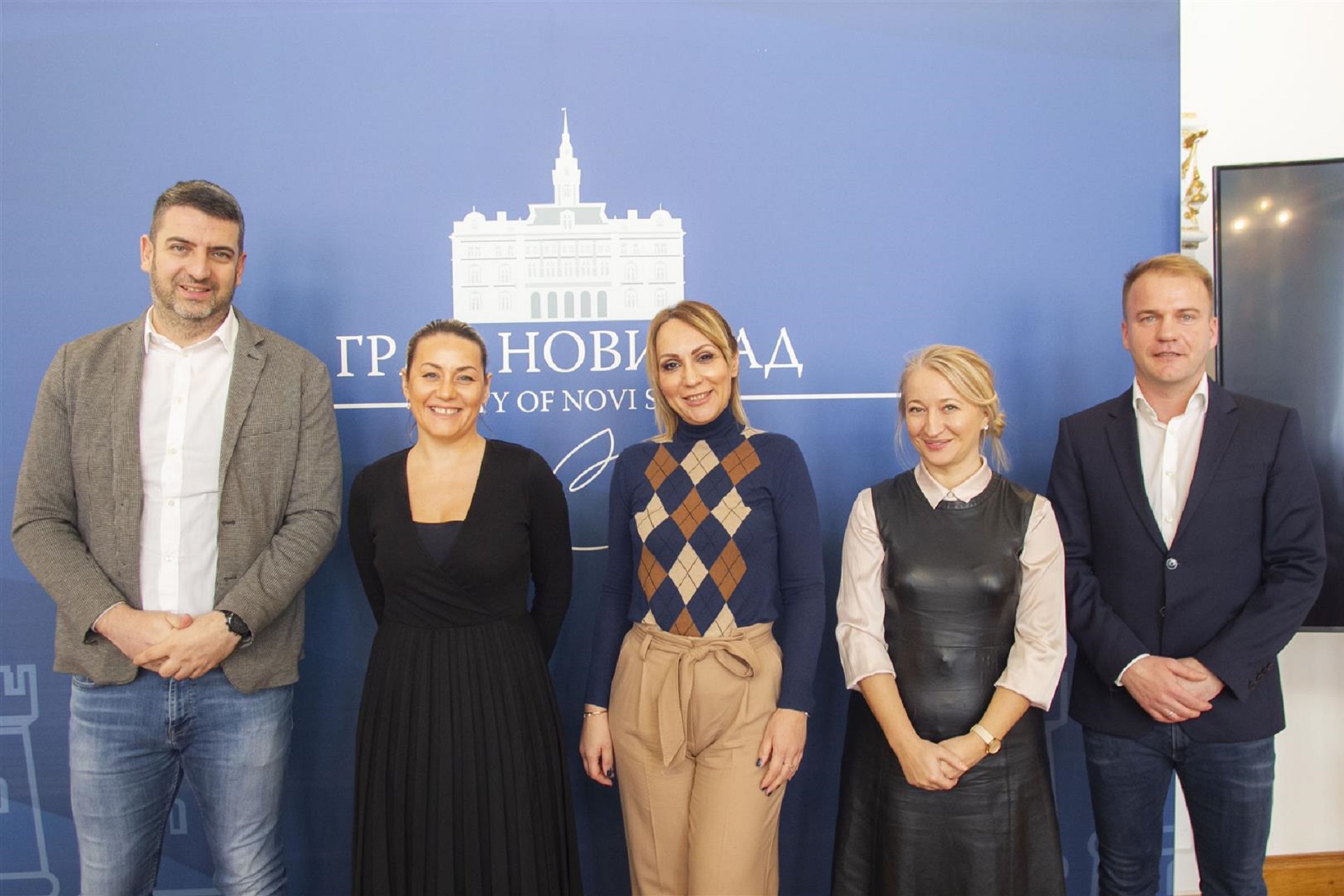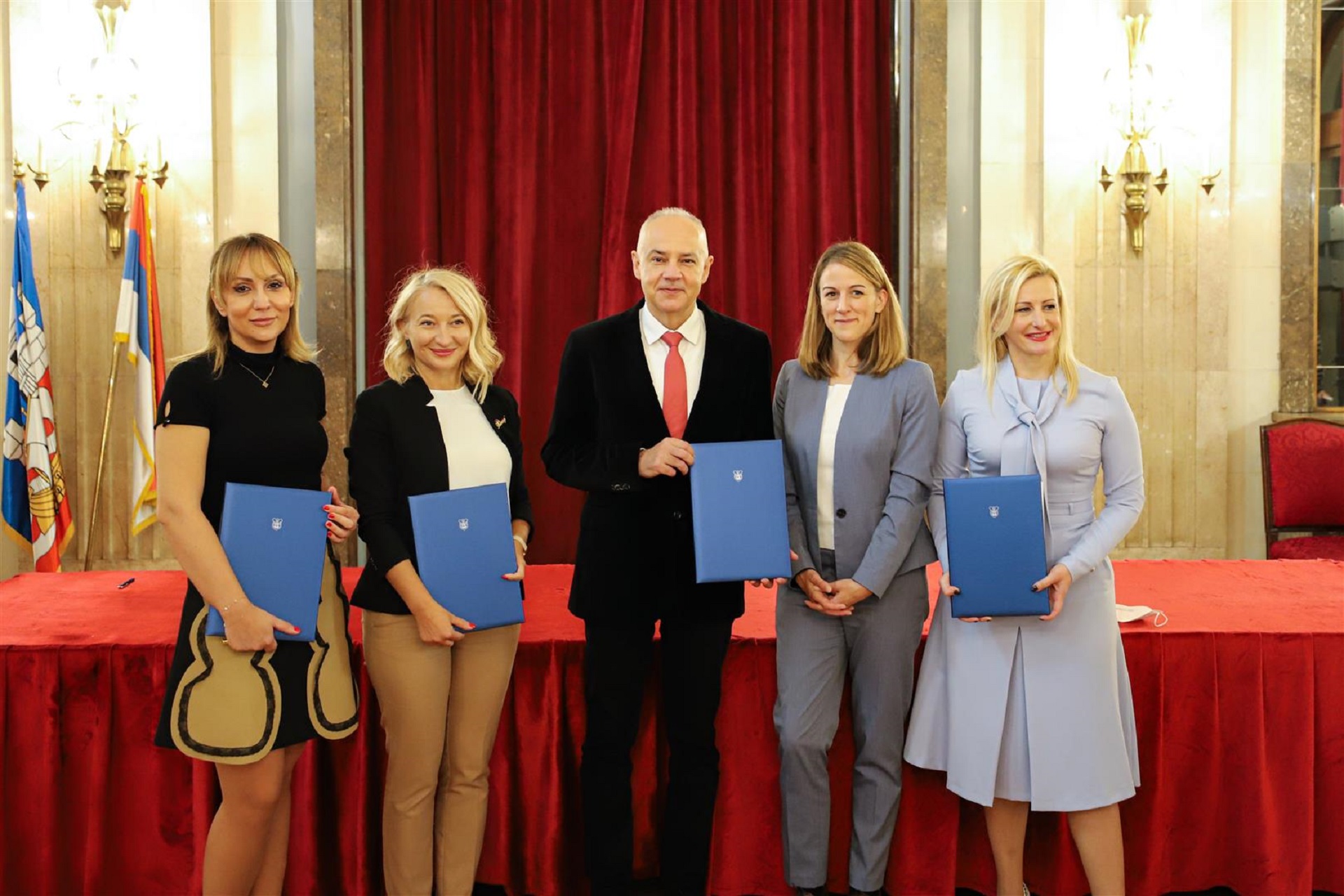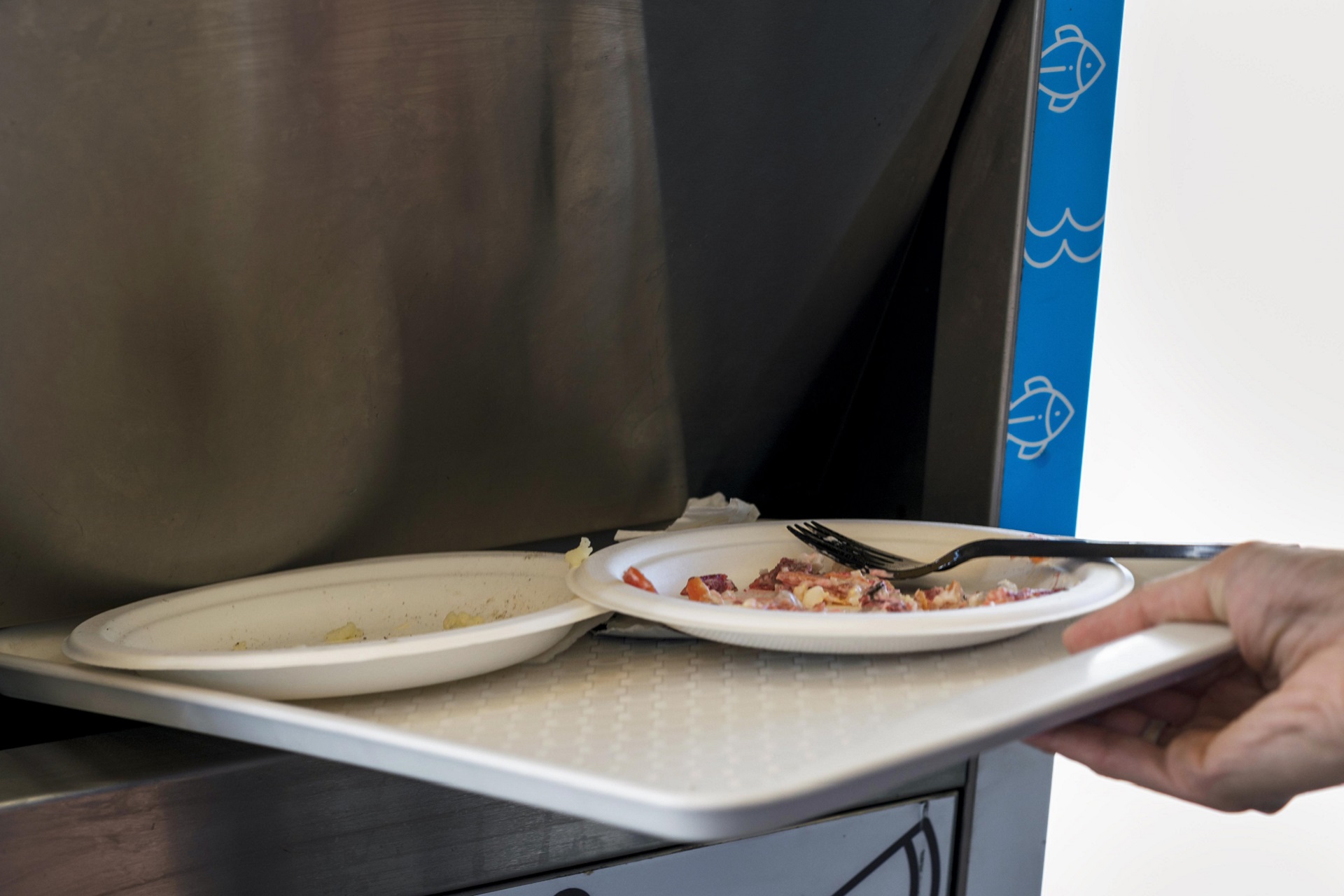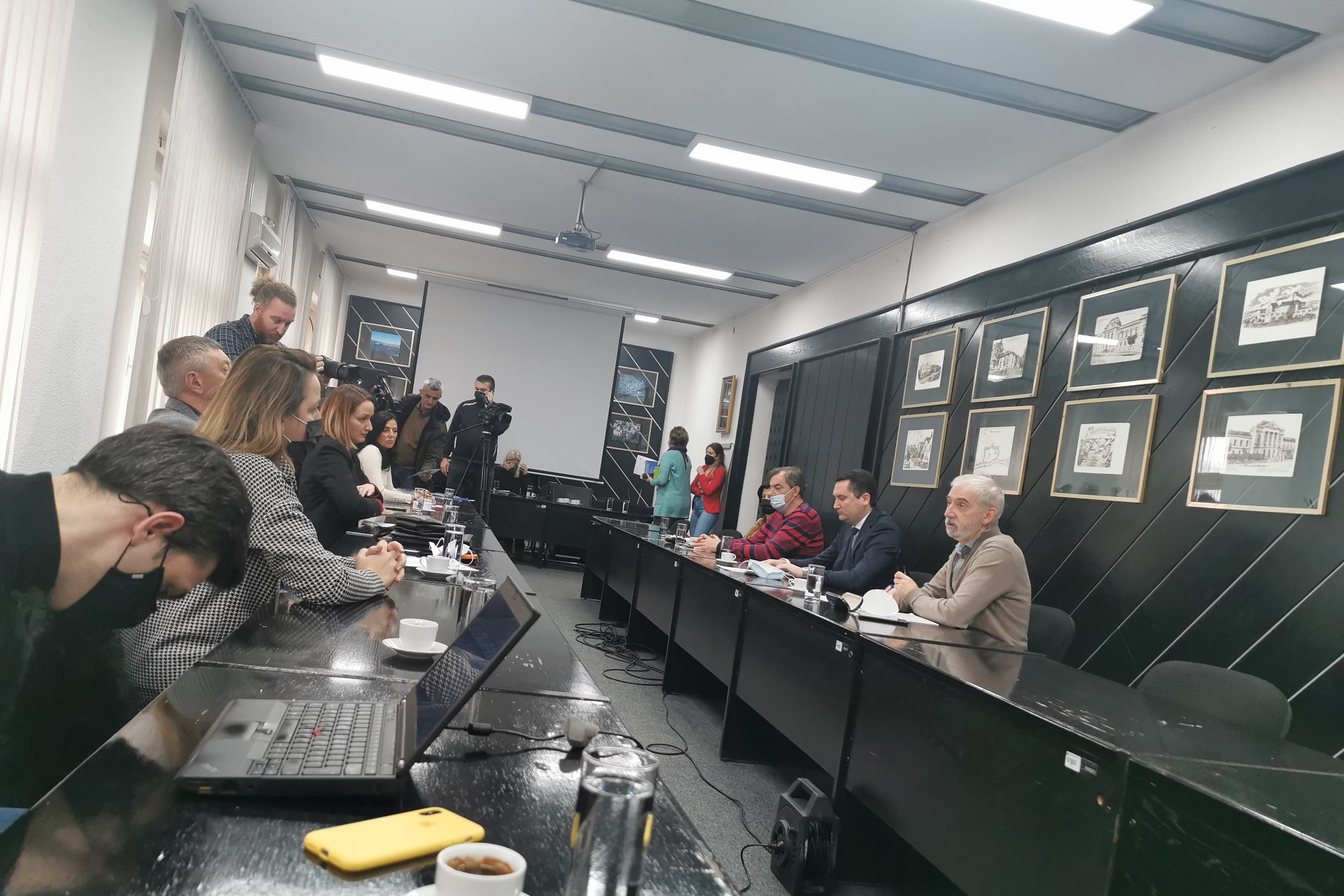Novi Sad receives 50 recycling bells for glass packaging
The city of Novi Sad received 50 recycling containers for glass packaging, intending to increase the amount of waste collected by at least 20% in the upcoming year. The European Capital of Culture has thus joined Belgrade, Nis, Kragujevac, Sombor, and Varvarin, which have already joined the project "Management of glass packaging in the Western Balkans", it was said at today's press conference at the City Hall.
The project, initiated by the German Organization for International Cooperation, is regional and is being implemented in Serbia, Bosnia and Herzegovina, and Northern Macedonia. In Serbia, the project is implemented by GIZ and NALED, in cooperation with the companies Sekopak and Apatinska pivara. - On the territory of the City of Novi Sad, 50 containers, so-called "Bells" will be the first step towards the introduction of primary separation of waste, as well as a step towards a cleaner Novi Sad. Citizens must get involved in these actions and show responsibility towards the environment. We hope for a successful realization of this project, and we ask the citizens to contribute by filling the "bells" - said Mira Radenović, member of the City Council for Environmental Protection, and added that the City of Novi Sad is working hard on environmental projects.
The construction of a regional center for waste management, in line with EU standards, is planned in the future. Director of JKP "Čistoća" Vladimir Zelenović said that the containers were distributed at locations selected by research, to collect as much glass waste as possible, separated from other municipal waste. "Our aspiration is that everyday images of landfills next to containers become our past, and high recycling rates our future," says Zelenović. According to the head of the Environmental Protection Unit at NALED, Slobodan Krstović, more than 400 tons of glass have been collected so far, and the results exceed initial expectations. - 87,000 tons of glass are placed on the Serbian market annually, of which less than 50% is recycled. One of the main reasons for this situation lies in an insufficient number of disposal containers, which is why NALED is actively working on setting up the missing infrastructure so that we have a place to dispose of food waste, light bulbs, batteries and glass, and together create environmental and economic sustainable recycling system - says Krstović.
The national coordinator of GIZ ORF MMS, Zorica Bilic, pointed out that this is an opportunity for Serbia to respond to the requirements of Chapter 27, which, among other things, require significantly higher collected quantities of different types of waste. She pointed out that glass recycling is a field where significant improvement is needed to reach the European level, and that this project provides us with a basis for such a move. The company Sekopak is the authorized operator on the project and it will take all the collected glass waste from Novi Sad to Croatia for further treatment. "We have been developing the project for more than a year and we are very glad that our joint effort paid off. The initial goal of the project was to increase the recycling of glass packaging by 20%, and we are already at 45%. We are in tune, we know what the potential challenges are" said Violeta Belanović Kokir, director of Sekopak.

